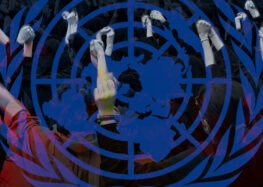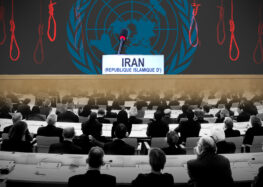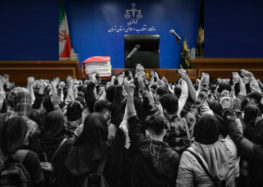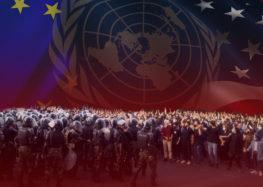UN Urges Iran to Release Imprisoned American Scholar Xiyue Wang
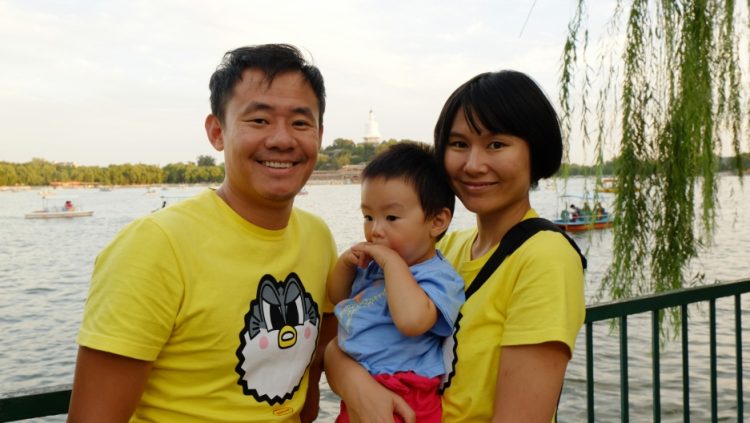
Xiyue Wang (left) poses for a photo with his son and wife.
UN, GENEVA (7 May 2019) ‑ UN experts firmly request Iran to immediately release American academic Xiyue Wang, whose arbitrary detention for nearly three years was a clear violation of fundamental rights guaranteed under international law, they said.
Wang, a doctoral student at Princeton University and an American citizen born in China, was arrested in August 2016 in Iran, where he was researching for his PhD on Eurasian history. In July 2017, the Revolutionary Court found Wang guilty of espionage and “collaboration” and sentenced him to 10 years’ imprisonment, in a trial held behind closed doors. His health is reportedly deteriorating and his life endangered amid claims of degrading treatment while in detention.
“Iranian authorities’ use of espionage charges against Mr. Wang simply for having sought access to century-old historical documents reaches the level of absurdity”, the UN Special Rapporteur on freedom of expression, David Kaye, the UN Special Rapporteur on Iran, Javaid Rehman, and the UN Working Group on Arbitrary Detention, noted. “The closed nature of the proceedings only exacerbates our concerns around this case.”
The UN experts’ statement follows the opinion of the UN Working Group on Arbitrary Detention, which held in September that Iran had violated Wang’s basic freedoms stipulated in Universal Declaration of Human Rights and the International Covenant on Civil and Political Right. The Working Group considered that, taking into account all the circumstances of the case, in particular the risk of harm to Xiyue Wang’s health, the appropriate remedy would be to release Mr. Wang immediately and accord him an enforceable right to compensation and other reparations, in accordance with international law.
“We are deeply concerned about Mr. Wang’s deteriorated health situation and at the allegations of ill-treatment and placement in overcrowded and unhygienic cells,” the experts said. Wang has been denied access to specialised medical treatment outside the prison since being held, despite multiple requests, they said, noting that Mr. Wang’s case is emblematic of numerous reports of other dual or foreign nationals arbitrarily detained in Iran, many of whom are also being denied appropriate healthcare.
“We deeply regret that individuals, such as Mr. Wang, who choose to pursue research and academic work are punished for their contribution to society. We urge the authorities to ensure his immediate release and to take serious steps towards protecting and recognising these rights,” the experts said.
(*)The UN experts: Mr. David Kaye, Special Rapporteur on the promotion and protection of the right to freedom of opinion and expression, Mr. Javaid Rehman, Special Rapporteur on the situation of human rights in the Islamic Republic of Iran, andMr. José Antonio Guevara Bermúdez, Chair-Rapporteur, Working Group on Arbitrary Detention;
The Working Groups and Special Rapporteurs are part of what is known as the Special Procedures of the Human Rights Council. Special Procedures, the largest body of independent experts in the UN Human Rights system, is the general name of the Council’s independent fact-finding and monitoring mechanisms that address either specific country situations or thematic issues in all parts of the world. Special Procedures experts work on a voluntary basis; they are not UN staff and do not receive a salary for their work. They are independent from any government or organization and serve in their individual capacity.

